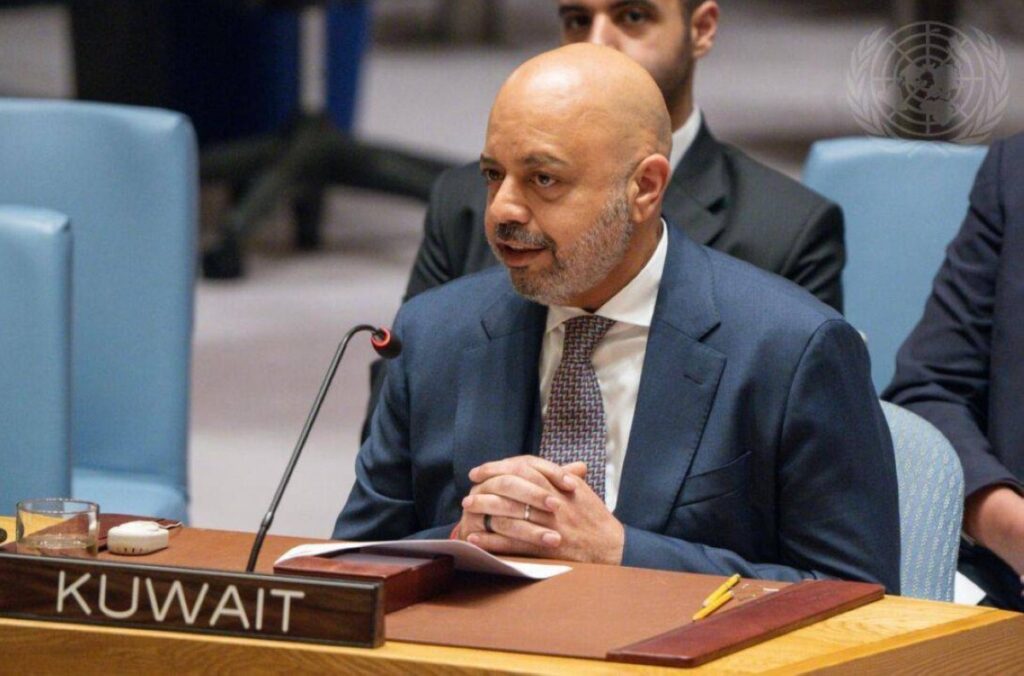‘The families of the missing and victims deserve justice and answers,’ says Kuwait’s Al-Bannai
NEW YORK: Kuwait and Iraq have reaffirmed this week their commitment to resolving the long-standing humanitarian issues stemming from the 1990 Iraqi invasion of Kuwait—specifically the cases of missing persons and lost national archives—while expressing differing views on the best path forward. In a meeting with ambassadors of the five permanent members of the UN Security Council and the European Union, Iraqi Prime Minister Mohammed Shia Al-Sudani said his government “places great importance on Iraq’s relations with Kuwait” and is working to address “the file of missing Kuwaiti persons and lost Kuwaiti property, including the national archives.” The Prime Minister emphasized Baghdad’s approach to resolving the issue “in the framework of bilateral cooperation,” according to a statement from his office.
His remarks followed a Security Council session in New York, during which Kuwait’s Permanent Representative to the UN, Ambassador Tareq Al-Bannai, called for continued UN engagement on the file. “These issues are not political disputes or bilateral disagreements, but humanitarian matters,” Al-Bannai said. “The families of the missing and victims deserve justice and answers regarding the fate of their loved ones.”
Al-Bannai added: “An entire nation is awaiting the return of its national archives, which are integral to restoring Kuwait’s historical memory. This is not just symbolic—it is a cornerstone for preserving Kuwait’s collective memory. Any delay in this matter undermines the historical justice we are seeking.”
The council session also featured a briefing by the Special Representative of the UN Secretary-General in Iraq, Mohamed Al-Hassan, who welcomed “the increase in field operations and the use of advanced technology to locate possible burial sites of missing Kuwaitis,” and called for “intensified efforts and enhanced coordination—including the search for witnesses to help locate the remains of 315 individuals still missing.”
Al-Hassan also noted the importance of accelerating the return of missing Kuwaiti property, including the archives, in light of “the recently welcomed decision to reactivate the joint Kuwait-Iraq committee on missing Kuwaiti property.”
In his remarks to the council, Al-Bannai underlined that the matter requires continued international attention. “These are inalienable rights that do not expire with time and should not be subject to political calculations or procedural delays,” he said. “Ending this suffering requires genuine will—turning words into tangible actions, free from procrastination and stalling.”
Al-Bannai also reiterated Kuwait’s support for the Secretary-General’s recommendation to appoint a senior UN official to follow up on these files after the UNAMI mandate ends in December 2025. He stated that such a mechanism “would yield more effective and concrete results, maintain momentum, and ensure sustained efforts toward the desired outcomes.” “Kuwait believes bilateral cooperation with Iraq remains essential,” Al-Bannai said, “but UN follow-up through the Security Council is indispensable.” As of now, both Iraq and Kuwait have expressed their commitment to resolving the files, but continue to differ on the appropriate mechanism. Iraq has favored bilateral arrangements, while Kuwait has stressed the role of the UN and the Security Council in ensuring progress on what it describes as a humanitarian matter. — Agencies

